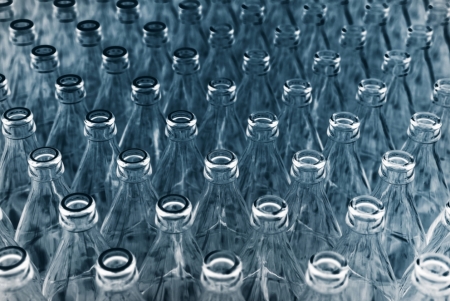Seasonal overload threatens DRS viability if glass included

Waste industry experts in the UK are warning that facilities for returning glass bottles in retail stores will not be able to cope with the huge rise in numbers at peak times such as Christmas, Easter and during hot summers. With in-store reverse vending machines designed to accommodate just 60kg of glass (about 220 whole bottles), the size of facility is expected to be inadequate during seasonal peak times when consumption is high and volumes of glass bottles recycled can surge by up to 60%.
Another problem highlighted is that glass jars, which are not accepted in the deposit return scheme and are a valuable source of clear glass for recycling, could simply be lost to landfill. “Under the proposed new system, household glass collections could become a thing of the past” Dr Nick Kirk, Technical Director of British Glass explained. “Jars make up around 15-
20% of a typical kerbside box and without glass bottles, it is likely that they will not provide a sufficient incentive for local authorities to continue to collect.”
According to Michael Durr, Managing Director of Glass Recycling UK, any decrease in the amount of clear glass in the system is a serious worry for the glass reprocessing industry too. “The majority of glass packaging processing plants in the UK are now designed to process a specially configured mix of glass; clear, green and amber. If there is less of any one of these coming through, such as clear glass because kerbside or bottle banks become financially unviable, it will significantly increase the cost of processing the remaining glass in the system.”
British Glass and an extensive alliance of waste management companies and drinks industry experts are urging the Scottish Government to rethink the inclusion of glass in the forthcoming deposit return scheme. “The potential collapse of kerbside recycling for glass has other unintended environmental and social consequences too” Dr Kirk confirmed. “These include increasing volumes of plastic packaging and CO2 emissions being a very real possibility, resulting from the current proposition. We are strongly saying ‘keep glass out, there is a better way’ and sharing our evidence with policy makers to stop this potential disaster.”



